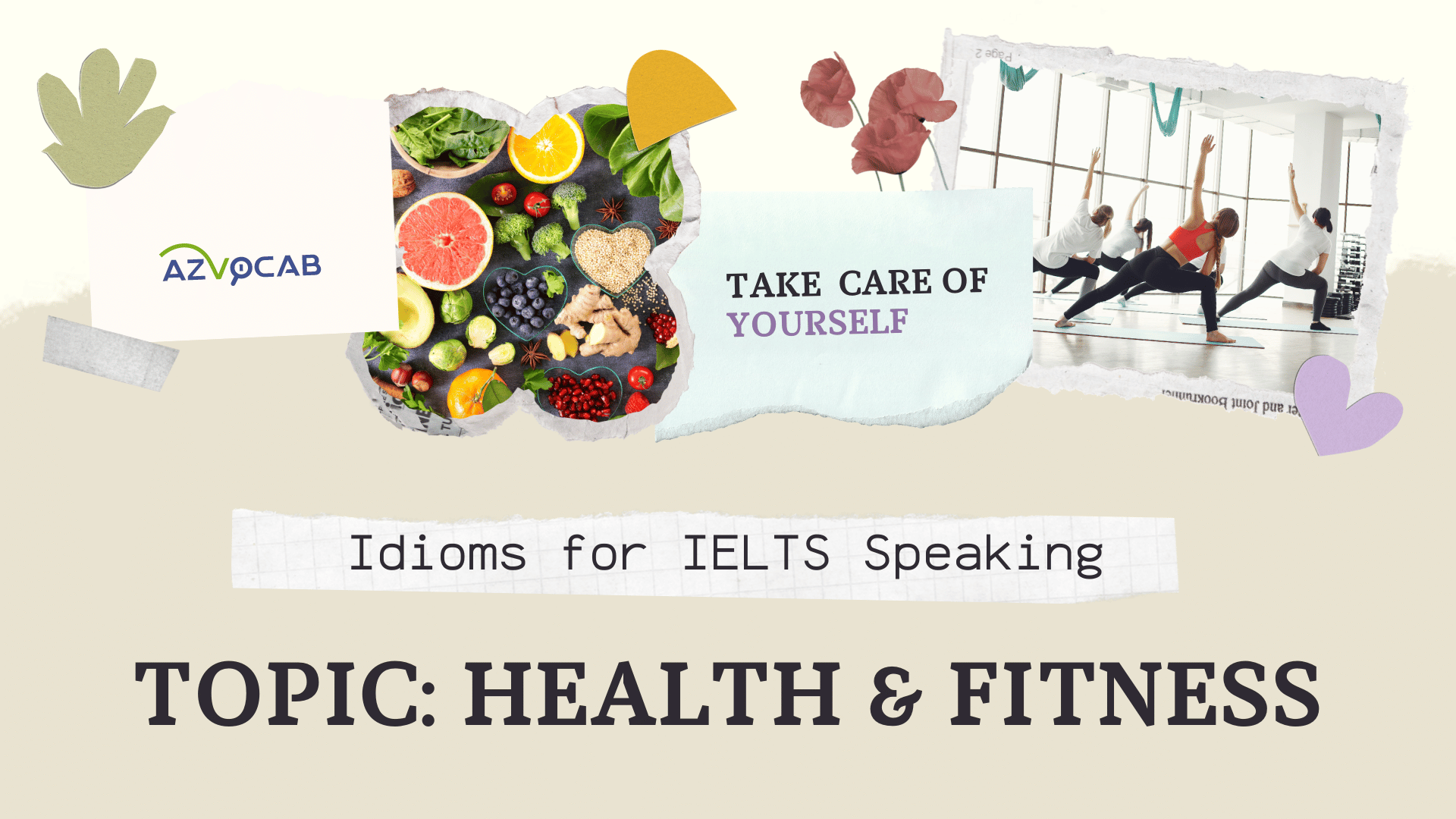IELTS Speaking is an exam that requires test-takers to use vocabulary skillfully and fluently, along with the ability to handle and respond in specific communication situations. Therefore, using idioms effectively can greatly help increase your IELTS Speaking band score.
In this article, azVocab has compiled 19 common idiom topics that can be applied in the IELTS Speaking test for your reference, along with how to incorporate idioms into your speech at the right time and place.
What Are Idioms?
Idioms are phrases or sentences composed of multiple words with a specific meaning that is not the sum of the meanings of individual words in the phrase. Idioms are commonly used in the everyday communication of native speakers. Therefore, using idioms in spoken language is crucial for achieving a natural and nativelike way of speaking. Furthermore, it’s a way to enhance your score on the IELTS Speaking test.
Why Use Idioms in the IELTS Speaking Test?
Using idioms is encouraged in the IELTS Speaking test because it makes conversations more natural. If you know how to use idioms in the right context and at the right time during the IELTS Speaking test, it will be highly effective.
Demonstrating Proficiency in Language Skills
Using idioms correctly in communication is not easy, so if you can use idioms in the right context and at the right time, examiners will highly appreciate your language skills. It shows that you can use language flexibly, have a wide vocabulary, and have good reflexes. As a result, your IELTS Speaking score will significantly increase.
Making Your Speech More Interesting
Using some idioms as highlights in your speech can make it much more interesting and leave a good impression on examiners. If you only use common phrases, your speech may be on the right topic, but it won’t be highly rated. However, if you can use idioms effectively, your speech will become much more engaging.
Expressing Concisely but Clearly
Sometimes in the IELTS Speaking test, speaking at length and explaining too much can make your speech lengthy and boring for the listener. In such cases, using a concise idiom to replace a long sentence will help you achieve effective communication while making your speech more interesting.
How to Use Idioms in IELTS Speaking Effectively and Some Common Mistakes
Idioms are often used in the IELTS Speaking test in the following cases:
- When you want to emphasize something in your speech, such as an event or something that left a deep impression on you. At this time, using idioms is a wise way to express that feeling. For example, “The discovery that the government was aware of the cover-up has really added fuel to the fire” (add fuel to the fire: make it more serious, tense).
- When you want to describe or comment on an object, event, or person. For example, “I felt a little under the weather on that day” (under the weather: not feeling well).
However, you need to use idioms at the right time and in the right way to avoid some common mistakes:
- Using too many idioms in your speech: Using idioms to get extra points is necessary, but don’t overdo it to avoid making the conversation sound unnatural, forced, and mechanical.
- Using idioms incorrectly or remembering them incorrectly: This is the worst-case scenario in the IELTS Speaking test. Only use idioms when you truly understand their meanings and how to use them. Using idioms incorrectly in terms of meaning or context not only leads to misunderstandings but also significantly affects your test score.
- Using uncommon idioms: Learning many idioms can be beneficial, but choose idioms that are commonly used in everyday speech. Uncommon idioms can make your speech difficult to understand and increase the likelihood of using idioms in the wrong context.
To identify common idioms, you can read books, newspapers, and stories, and watch movies or TV programs that native speakers usually engage with. This way, you can learn common idioms and how to use them in specific contexts more effectively. To help you save time on learning and researching, azVocab has compiled idioms into 19 common topics below for your reference.
19 Common Idiom Topics for the IELTS Speaking Test
Below, azVocab has compiled common idioms for the IELTS Speaking test according to the 19 most common topics. These are carefully selected idioms provided with complete examples so you can learn how to use them in specific contexts.
- Human Relationships
- People
- Education
- Time and History
- Crime and Punishment
- Place and Building
- Travel and Transport
- Science and Technology
- Business and Economics
- Fame and Media
- Entertainment
- Health and Fitness
- Language and Communication
- Culture and Society
- Food and Drink
- Nature and The Environment
- Festivals and Traditions
- Inventions and Discoveries
- Work and Lifestyle
Some Resources for Learning Idioms for IELTS Speaking
The Most Popular Idiom Books for Learning Idioms for IELTS Speaking
There are many books on the market that serve well for IELTS preparation, especially for learning vocabulary. However, choosing the right book that suits your level and the band score you want to achieve can help you save time in your effective preparation. Understanding this, azVocab has compiled the top 4 most popular idiom books for IELTS Speaking:
- Oxford Dictionary of English Idioms – Editor: John Ayto
- English Idioms in Use – Author: Felicity O’Dell and Michael McCarthy
- Cambridge English Idioms in Use – Author: Martin Hewings
- Essential Idioms in English – Author: Robert J. Dixson
The Most Popular YouTube Channels for Learning Idioms for IELTS Speaking
YouTube is a treasure trove of educational content, and there are many channels dedicated to teaching idioms. Here are some popular YouTube channels that can help you learn idioms for the IELTS Speaking test:
- Learn English with Let’s Talk – Free English Lessons: This channel covers a wide range of English topics, including idioms.
- Interactive English: Interactive English provides lessons on idioms and how to use them in conversation.
- Learn English Lab: Learn English Lab offers lessons on idioms and phrasal verbs.
- BBC Learning English: BBC Learning English offers lessons on idiomatic expressions and phrases.
Remember that learning idioms is a gradual process, and it’s important to practice using them in your speech to become comfortable and natural in incorporating them into conversations. Additionally, make sure to understand the meanings and contexts of idioms to avoid using them incorrectly. With consistent practice and exposure to idiomatic expressions, you’ll enhance your language skills and perform well in the IELTS Speaking test. Good luck with your IELTS preparation!






